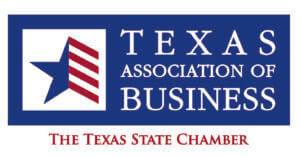Streamlining Cross-Border Infrastructure Permitting is the Most Significant Trade Policy Development Since the USMCA
Earlier this week, Texas Senator Ted Cruz highlighted a little-known but nonetheless critical policy reform that has resulted in one of the most important developments in the Texas-Mexico trade relationship in recent memory: the presidential permit approval to move forward with the long-awaited Laredo 4/5 Bridge in Webb County.

Signed into law at the end of 2023 within the National Defense Authorization Act (NDAA), the bipartisan legislation to facilitate an expedited Presidential permitting process for new and expanded bridges across the Rio Grande in Brownsville, Laredo and Eagle Pass paved the way for the recent approval of the 4/5 Bridge – named because it is the fourth international bridge connecting Tamaulipas, Mexico with Laredo, and the fifth bridge in Webb County, with one connecting to the state of Nuevo León. This follows earlier approvals of new international bridges in Eagle Pass and Brownsville, as well as the expansion of the World Trade Bridge in Laredo.
However, none of these expansions would have moved forward this year without the common-sense, bipartisan legislation that cuts out onerous, bureaucratic red tape that had bogged down such projects for years and streamlines the presidential bridge permitting process, which is necessary to set the next phases of planning and construction in motion. While the State of Texas took steps during the 87th Legislature to enhance efficiencies in its own approval process and eliminate unnecessary barriers, the important reform at the U.S. federal level has helped further streamline the development of critical infrastructure to facilitate the ever-growing cross-border commerce between Texas and Mexico.
That’s why, as I’ve made clear since the beginning of this year, this bipartisan reform represents the most significant development in trade policy since the passage of the USMCA in 2020. I applaud the outstanding members of the Texas delegation from both parties for their support of this important reform, as well as the steadfast leadership of Senators Cruz and Cornyn, who helped push President Biden across the finish line in granting approval of Bridge 4/5 at the beginning of this month, writing:
“Our understanding is that the State Department considered the presidential permit application for Bridge 4/5 complete on June 6, 2024, and submitted a recommendation to you on August 5. We strongly urge you to swiftly approve the presidential permit for Bridge 4/5, which will bolster trade with Mexico, improve supply chain resiliency, and create good paying jobs in Texas.”
Laredo is already the number one port in the U.S. by volume, with approximately $320 billion in total trade in 2023 alone. To handle the expected increase in commerce across the Texas-Mexico border, we are even more optimistic about the potential for our trade relationship to break new records and reach new heights, especially given the nearshoring trend and the integration of Texas-Mexico trade under the USMCA
As a longtime advocate for reforms to enhance cross-border commerce, IBC Bank’s President & Chairman Dennis Nixon emphasized the importance of the reform to the future of cross-border commerce between Texas and Mexico:
“With this approval, I’m incredibly excited that the 4/5 Bridge Project can now take the next step towards construction and ultimately to open as an entirely new trade asset and solution for Port Laredo, the largest port in the nation…Without additional bridges, the trade community would have faced an increasingly dire situation without congestion control, impeding our ability to keep up with the rapid rate of increase in the volume of goods moving across the border. At IBC, we will continue to work with the county, sponsors, and all interested parties to make sure this long-awaited dream becomes a reality.”
As the trend of nearshoring accelerates, we need to be sure governments, state and local transportation authorities, and the business community are all working hand-in-hand to strategize the next phase of cross-border infrastructure projects. Thankfully, the critical reforms undertaken this year – with the support the Texas business community and our Congressional delegation – will play a major role in ensuring those visions can come to fruition and continue to drive prosperity and growth throughout the Texas-Mexico border region.
– Glenn Hamer, President & CEO, Texas Association of Business
###
